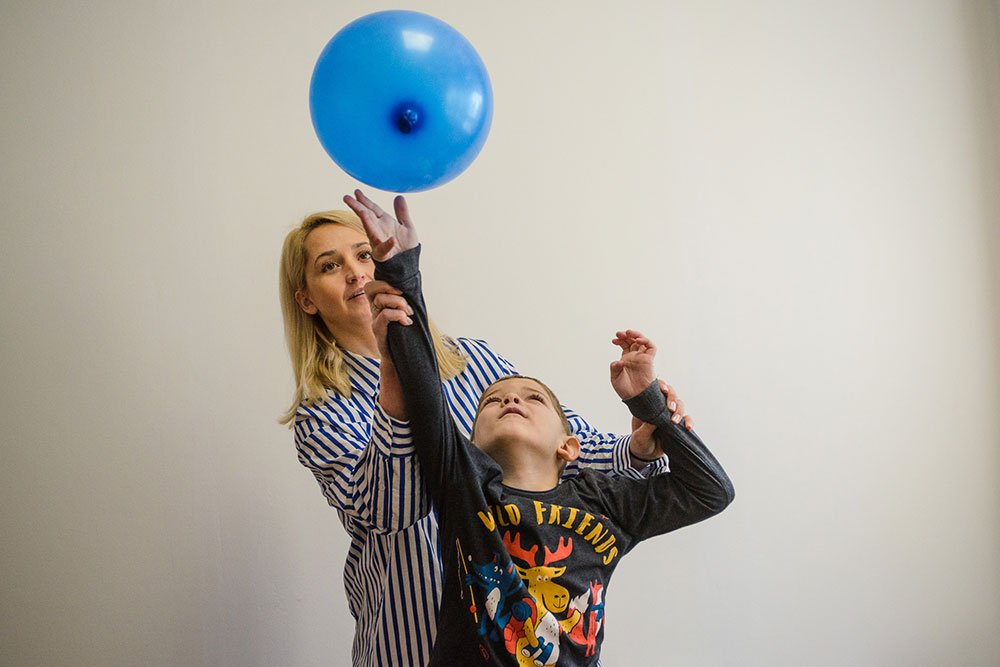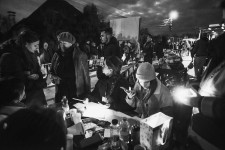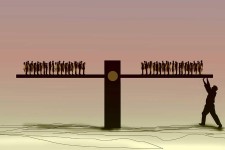Danil Tkalych, a six-year-old boy, took the tablet from his three-year-old older sister, Sofia, and retreated to an armchair in one of the three rooms of the Baia Mare apartment where the two children and their parents moved a few months ago. The four members of the Tkalych family are among about 100,000 people who have fled the war in Ukraine and are registered in Romania (https://data.unhcr.org/en/situations/ukraine).

A few minutes ago, Danil and his mother, Maryna, arrived from the Baia Mare Autism Association's rehabilitation centre for children with disabilities, where the boy is receiving therapy. In August 2021, Danil was diagnosed with autism spectrum disorder.
They lived in Orihiv, a town of about 14,000 inhabitants, 50 kilometres from Zaporozhye, the capital of the region with the same name in south-eastern Ukraine. Danil was afraid of strangers, was extremely sensitive to certain sounds and textures, ate only meatballs, salami, bread and puff pastries and did not use cutlery. When he didn't want to do something or was frightened, he would become aggressive with others or bite his hands, hit his own head or slam it against the walls. He managed to have a few therapy sessions in his home town until the COVID pandemic led to the closure of specialist services. In 2022, the war began.

War and peace
"On February 24 my husband was away. I took my daughter to school. I was getting ready to take Danil to kindergarten and run quickly to work. There was no phone connection. We didn't know what was going on, why we couldn't call each other," Maryna recalls.
A neighbour told her that the war had started and she should take her children out of school. As she had no one to leave Danil with, she took him with her. On the way she saw panicked people and long queues at the petrol station. After picking Sofia up from school, she announced at the shop where she was employed that she couldn't go to work because she had no one to leave her children with. It wasn't until late in the evening that Maryna's husband, Dmitry, was able to contact the family. They decided to stay in town, even though the Russian troops were very close.
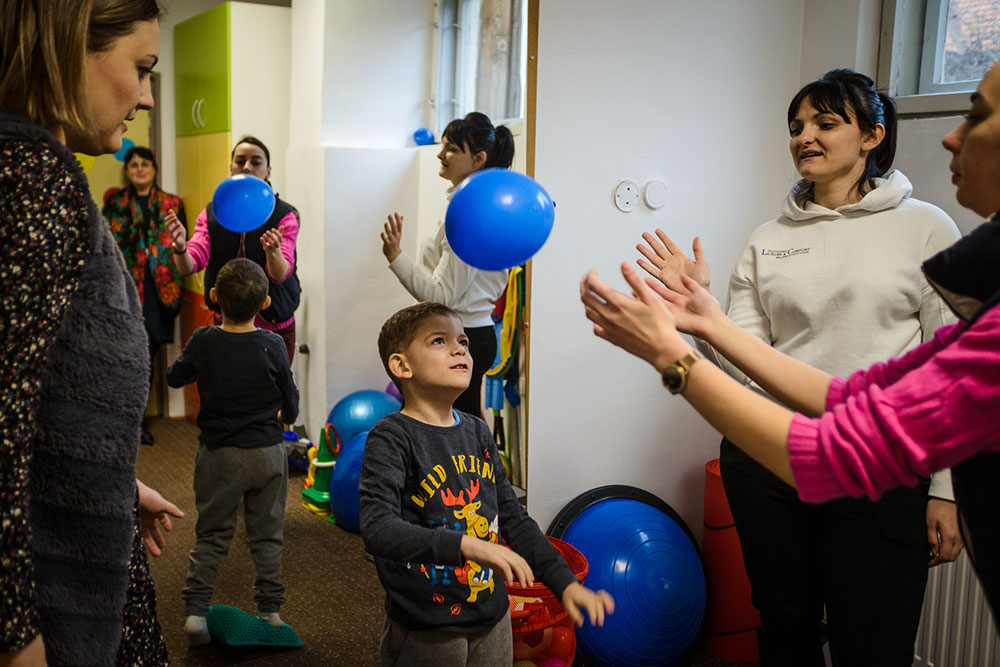
Soon, Dmitry, who was carrying bread in the district, was out of work because they could no longer use the roads. Maryna continued to go to work until one day the shop was bombed. She escaped only because she managed to take shelter in a cellar.
"That's how I stayed alive. It was awful. There were several of us hiding when the shooting started. We stood and looked at each other. We didn't know what to do. We were just looking at each other. After everything cooled down, we got out and started running. I looked around: the building was destroyed, the electric cables were on the ground, there were big holes left over from the bombing."
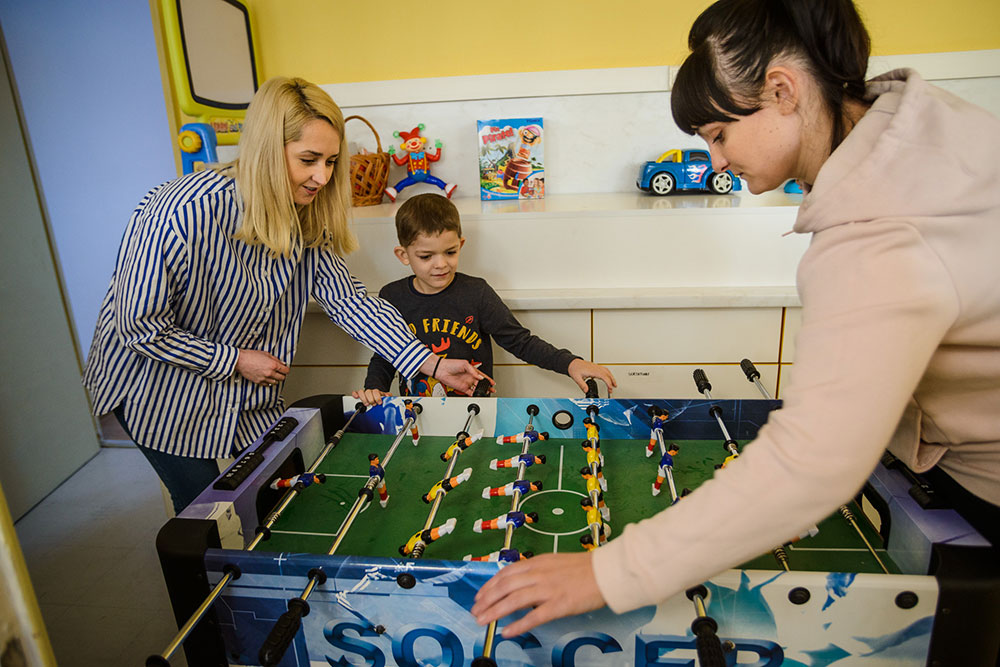
They moved into the basement of the house. It was cold and they had nothing to burn in the stove in the room. There was no electricity. They could hear the shooting and feel the house shaking. The children were crying and the adults were exhausted because of fear and not sleeping. They understood that the war would not end soon and decided to leave. They didn't have a car, but they managed to find someone to drive them out of town. It was April 20th. It was a very painful moment because they had to abandon their pets: three cats and a dog. Maryna's voice shakes and tears well up in her eyes as she remembers their dog running behind the car.

"At that point, we couldn't control him any more."
They stayed for two days with some neighbours in Zaporozhye, while they got in touch with another one who was in Romania and who encouraged them to follow, as they would get free accommodation and money for food. They arrived at Solotvino customs - a small town on the Romanian border near Sighetu Marmației - after a seven-day journey by train and various cars. They were unable to leave Ukraine because a stamp was missing on the document proving the boy's disability and the one allowing the father to leave the country. They returned to Lviv, where they remained for two weeks, until they managed to fill in the documents that allowed them to cross to Romania together.

They arrived in Baia Mare on 3 May. At first they were housed in a hostel. They were in a state of shock and were unable to leave the house for two weeks. "Then we understood that we really had to do something for the children. We had to pull ourselves together, to be strong. The months we spent in the basement had a huge impact on the children's lives. They were both very scared. And from Danil's life disappeared everything we tried to achieve through therapies, through education. At that point, we couldn't control him anymore."
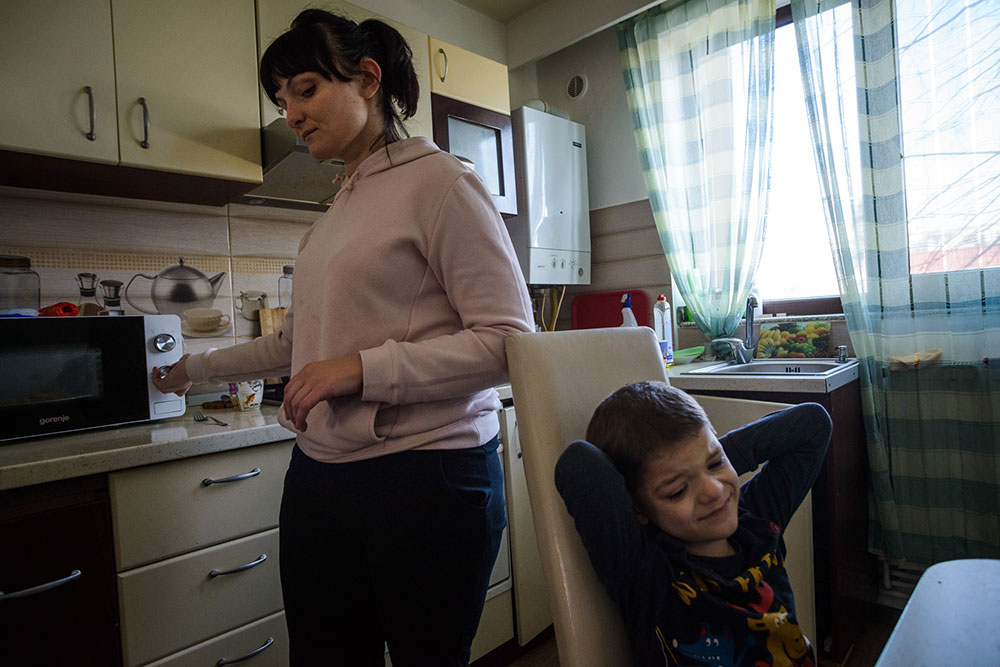
They decided to ask for help and contacted ASSOC, an association in Baia Mare that supports vulnerable groups, and the translator Ludmila Focșa. That same month, Danil entered a rehabilitation programme for children with disabilities ran by the Baia Mare Autism Association and he started therapy.
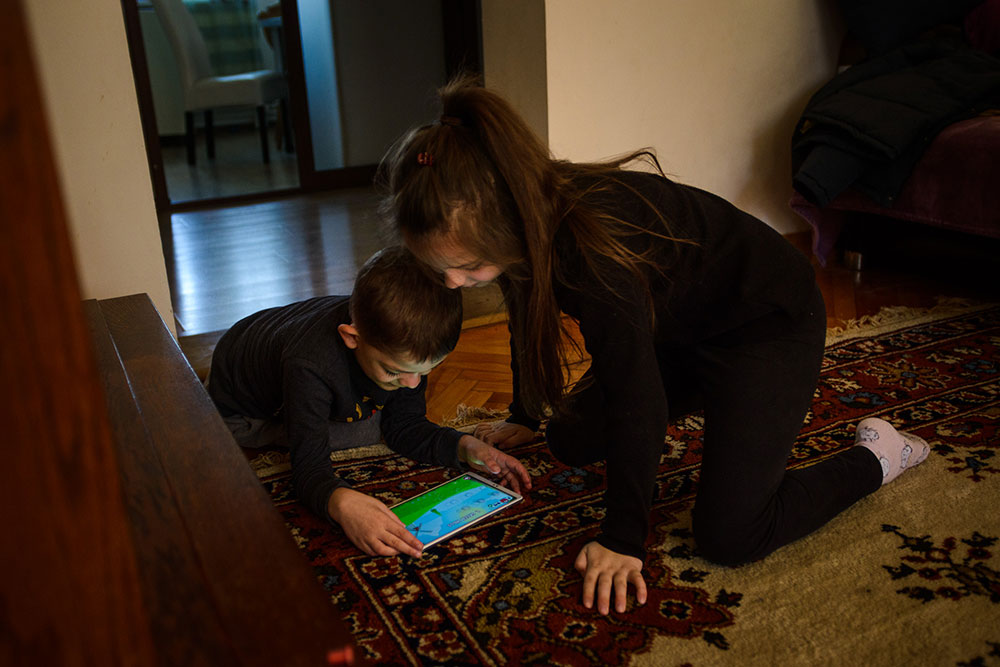
Orihiv holds its ground
For the first few weeks he had to be accompanied by both his parents, but for the last few months only one parent has to be present. Attending therapy sessions is also important for the parents, because it helps them understand how to interact and work with him.

Maryna remembers how she often cried because she simply didn't know how to handle Danil. Dmitry also found it hard to accept that his son has autism. Over time, however, they came to see no difference between him and a normal child. And Danil's condition is actually improving: he can spend 15-20 minutes during an activity without getting up from the table, he's no longer so sensitive to noises (he can sit still for a haircut), he's eating more different types of food, he no longer exhibits aggressive or self-aggressive behaviours, and he's willing to walk hand-in-hand with one of his parent and play with other people.
Maryna's parents moved to a town near Orihiv and do not plan to leave Ukraine. They don't want to give up their cow and chickens. The sound of an explosion shattered the windows of their house. They replaced the windows. They also made some short videos and sent them to their children.
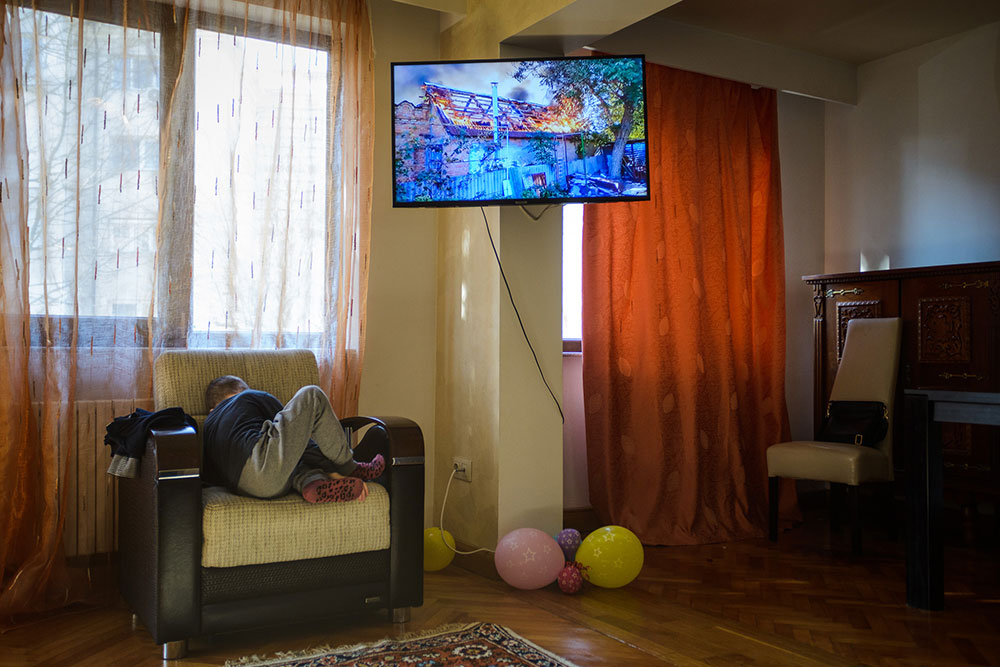
The most vital thing for Maryna and Dmitry is that their two children are healthy and safe. Every day they pray and hope that they will return back home. They don't know if they will find their newly renovated home, bought at the cost of so much sacrifices. They wish they could go to the cemetery in their town because that's where Maryna's grandparents and Dmitry's father are buried. The cemetery was destroyed. So was the school Sofia was attending. They've seen it on the news and in YouTube videos.
The TV near the armchair where Danil was sitting is tuned to a Ukrainian TV news channel that broadcasts live on YouTube. Orihiv is the little town that prevents Russian troops from reaching Zaporozhye. But nobody knows for how long.








